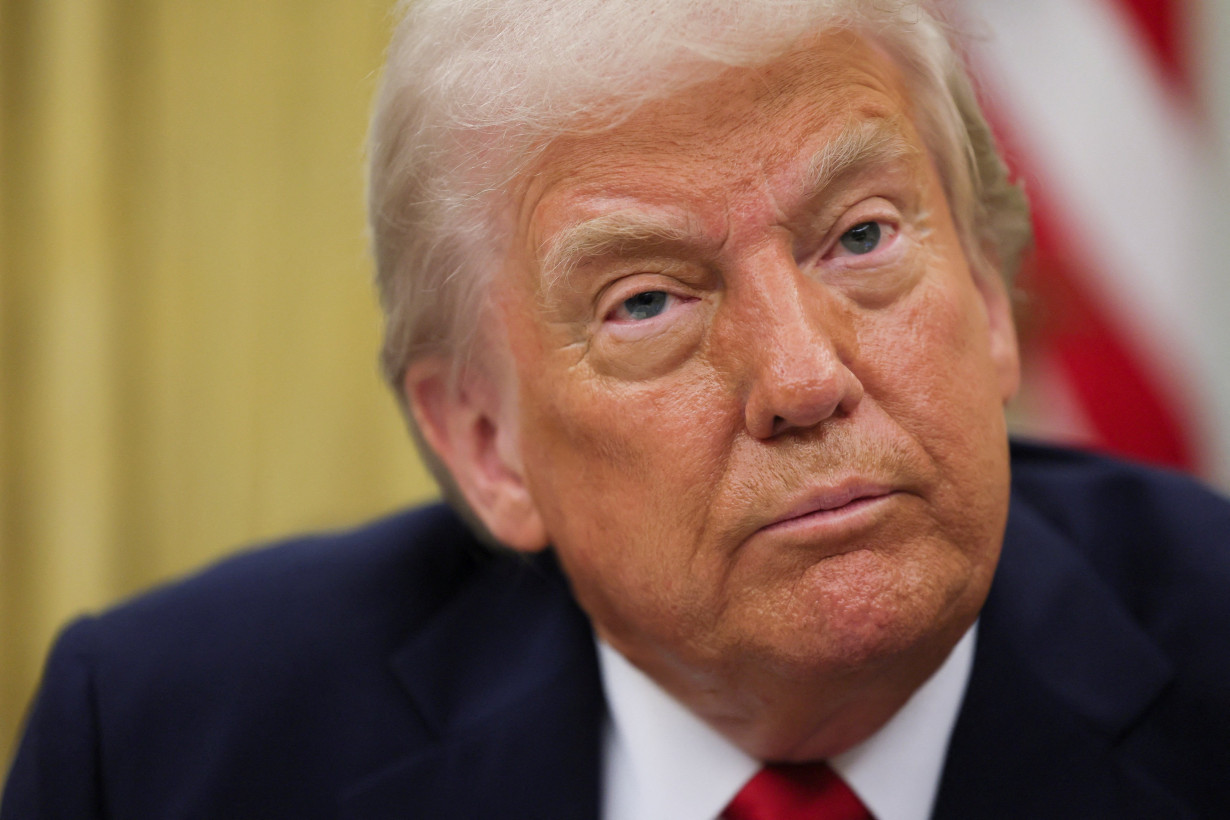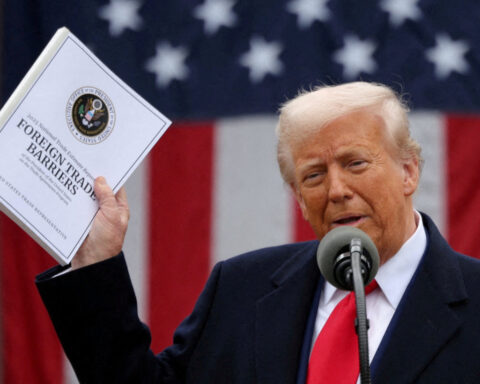By David Morgan
WASHINGTON (Reuters) -U.S. Senate Republicans on Wednesday released a revised version of their blueprint to advance President Donald Trump's tax cut agenda that moved closer to a House of Representatives goal of $2 trillion in spending cuts over a decade.
The announcement followed a White House meeting with top congressional Republicans, where Trump signaled support for the sharp spending cuts sought by House and Senate hardliners, according to people who attended the meeting.
The Senate Budget Committee plan estimates the cost of extending Trump's 2017 tax cuts, as well as delivering on sweeping new promises to eliminate taxes on tips, overtime and Social Security retirement payments, at $1.5 trillion over a decade. That is far below the $4.5 trillion cost estimated in a blueprint that passed the House in February.
The estimates differ because Senate Republicans intend to use a controversial approach that claims extending the 2017 tax cuts will not add to the nation's debt.
The nonpartisan Committee for a Responsible Federal Budget estimated the Senate budget measure could add about $5.8 trillion to the U.S. debt in the next decade.
Nonpartisan budget analysts have estimated that adopting all of Trump's tax proposals could cost up to $11 trillion.
Senate Republicans said they aimed to vote on the measure later this week and send it to the House for approval before a two-week Easter break, beginning April 11.
"It is now time for the Senate to move forward with this budget resolution in order to further advance our shared Republican agenda in Congress," Senate Majority Leader John Thune said in a statement.
The Senate resolution calls for a $5 trillion increase in the federal government's debt ceiling. Congress must address its self-imposed borrowing limit by sometime this summer or risk a devastating default on its debt, which currently stands at around $36.6 trillion.
House Republicans have warned that they will not support a Senate resolution that fails to meet their $2 trillion spending-cut target.
The Senate measure sets savings targets for individual committees as low as $1 billion, but includes an aspirational goal of cutting $2 trillion in non-defense spending over a decade, with a plan to target programs that grew during and after the COVID pandemic.
Democrats and activists have warned that lawmakers will have a hard time achieving their $2 trillion spending-cut goal without cutting deeply into the Medicaid health insurance plan for low-income Americans.
"No amount of gaslighting from Republicans about the true cost of their tax plan, now upward of $5 trillion, can hide the fact that they want to pay for handouts to billionaires and corporations by kicking millions of Americans off their health insurance, driving up child hunger and wiping out hundreds of thousands of jobs," said Senator Ron Wyden, top Democrat on the Senate Finance Committee, in a statement.
Senate Republicans would also increase military spending by up to $150 billion over a decade and provide an additional $175 billion to fund Trump's border restrictions and deportation of immigrants who are in the country illegally.
The Senate and House must pass a budget blueprint to unlock a parliamentary tool known as budget reconciliation, which would allow Republicans to bypass the objections of Senate Democrats.
(Reporting by David Morgan; Editing by Scott Malone, Leslie Adler, Chizu Nomiyama and Matthew Lewis)

 Trump has begun another trade war. Here's a timeline of how we got here
Trump has begun another trade war. Here's a timeline of how we got here
 Canada's leader laments lost friendship with US in town that sheltered stranded Americans after 9/11
Canada's leader laments lost friendship with US in town that sheltered stranded Americans after 9/11
 Chinese EV giant BYD's fourth-quarter profit leaps 73%
Chinese EV giant BYD's fourth-quarter profit leaps 73%
 You're an American in another land? Prepare to talk about the why and how of Trump 2.0
You're an American in another land? Prepare to talk about the why and how of Trump 2.0
 Chalk talk: Star power, top teams and No. 5 seeds headline the women's March Madness Sweet 16
Chalk talk: Star power, top teams and No. 5 seeds headline the women's March Madness Sweet 16
 Purdue returns to Sweet 16 with 76-62 win over McNeese in March Madness
Purdue returns to Sweet 16 with 76-62 win over McNeese in March Madness






